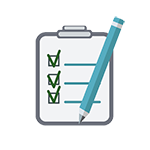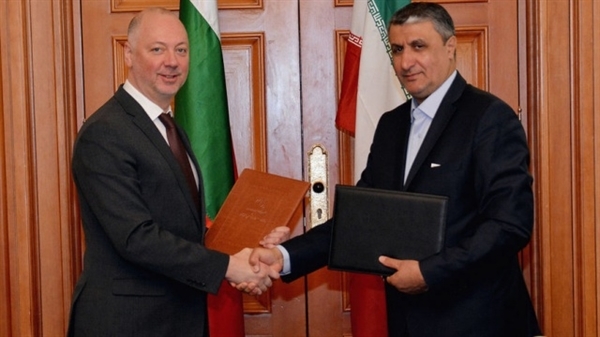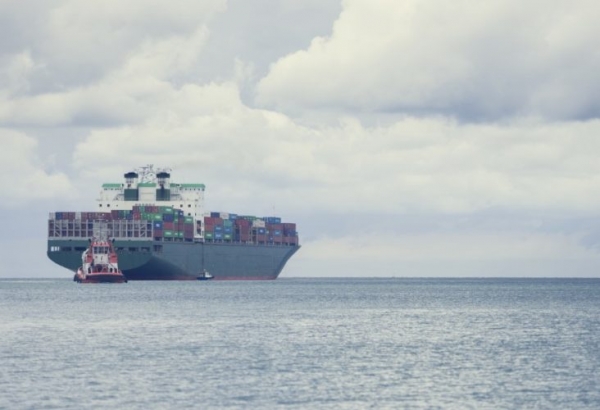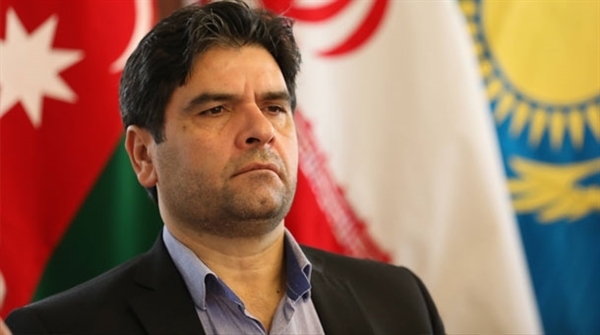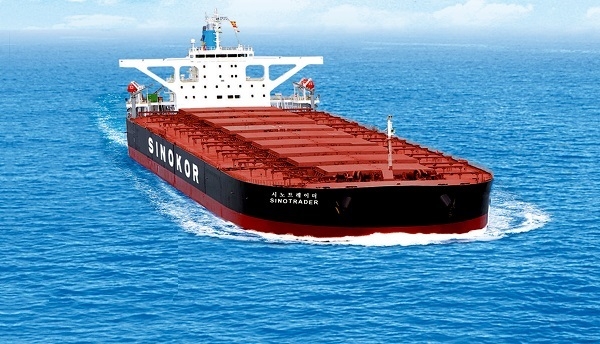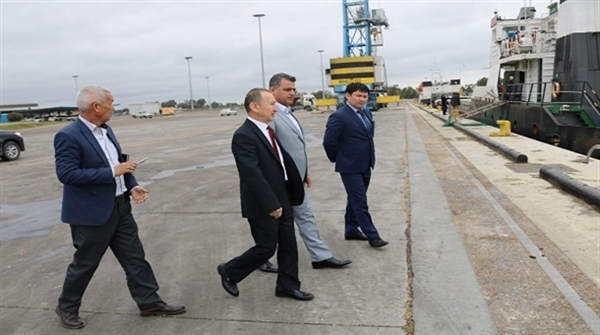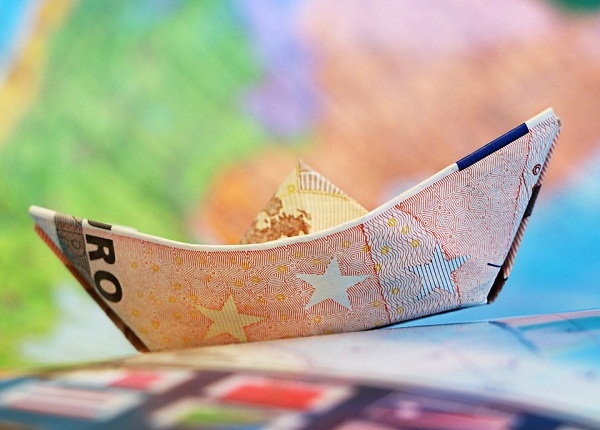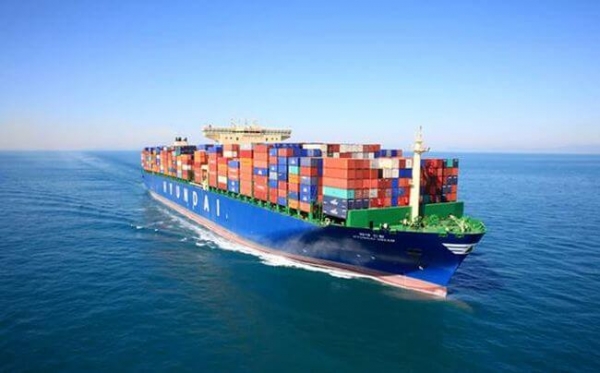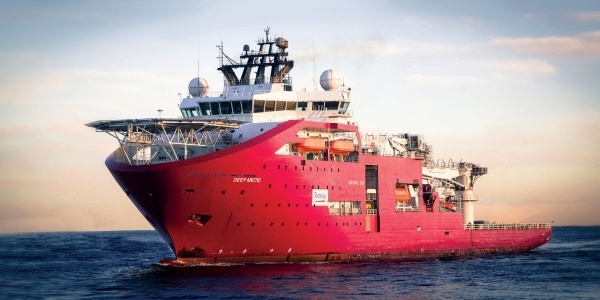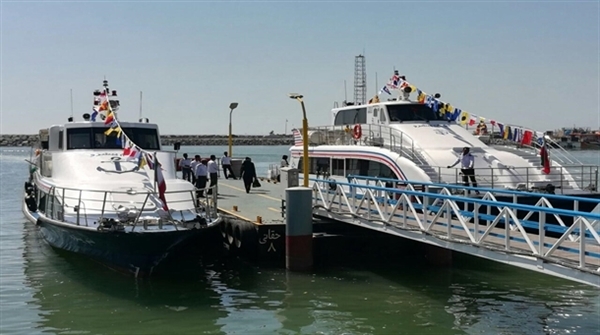News
Latest news
Iran, Bulgaria sign MoUs to widen cooperation
Iran and Bulgaria have signed six Memoranda of Understanding (MoU) to boost cooperation in different fields, including ports and maritime transport, postal services, trade, meteorology, and standardization policies.
The agreements were signed during a meeting between Iran’s visiting Minister of Roads and Urban Development Mohammad Eslami with Bulgarian senior officials, including Prime Minister Boyko Borissov, in Sofia on Thursday.
During the meeting, the two sides also explored the avenues for widening cooperation in other fields such as energy, agriculture, information technologies, youth and sports, and tourism.
Borissov said that Iran is a traditional partner in the Middle East region, and Bulgaria attaches great importance to the development of its relations with that country.
The traditionally good cooperation in the area of transport should be activated, he underscored.
The Bulgarian official said his country welcomes a continuation of the discussions on the options for developing the Greece-Bulgaria-Black Sea-Georgia-Azerbaijan-Armenia-Iran transport corridor, which creates opportunities for effective and reliable freight transport between the Middle East countries and the Central and East European countries.
At this summit, Mohammad Ali Hassanzadeh as the Deputy Director of Port and Economic Affairs of the Ports and Maritime Organization conducted special talks and held joint meetings with his Bulgarian counterpart, finalizing and signing the Memorandum of Understanding on Ports and maritime Relations between the two countries.
Reference: pmo.ir
Trade War Is the Best Thing that Happened to Container Shipping
The end of the escalating trade war between the world’s two super-powers, China and the United States, seems to be on the horizon as the two sides near a deal on ending the tit-for-tat tariffs on export and import of goods.
Following a truce at the end of 2018 and the ensuing trade talks, the focus now is on the enforcement mechanism aimed at making sure the US and China meet their commitments allowing for the tensions to cool down.
According to US Treasury Secretary Steven Mnuchin, the bilateral trade talks have resulted in a mechanism to police the yet-to-be-unveiled trade agreement, which will entail establishment of new enforcement offices and repercussions for whomever fails to meet their end of the deal.
Even though the trade tariffs have had an adverse impact on the shipping market, especially for bulkers and tankers, there are industry leaders that believe the trade tensions were favorable for the container shipping market fundamentals overall.
Speaking at Capital Link’s 13 Annual International Shipping Forum, in a panel dedicated to container shipping, George Youroukos, Executive Chairman of Global Ship Lease, said that the “trade war is the best thing that happened to container shipping in the last few years.”
“Our industry is cyclical not because we have a cyclical demand – every year the demand is bigger than the last year. The reason we have a cyclical market is because of the supply, and the trade war has put the supply in check, putting a break on the ordering of new ships,” he added.
As explained, the lack of new ordering has paved the way for the lowest order book the industry has had in decades. This is very important having in mind that the container shipping sector has been battling choppy waters over the past few years especially due to overcapacity.
Furthermore, Youroukos pointed out that he was not worried about the trade wars as he doesn’t believe the production of goods could be switched from the Far East to the Western hemisphere, hence there is no room to fear about trade wars having a major impact on the global container shipping patterns.
Commenting on the trade tariffs, Howard Finkel, Executive Vice President of COSCO Shipping Lines (North America), said that the company hasn’t seen a huge effect on trade as tariffs on certain imports that would have had a greater effect haven’t been put in place yet.
Specifically, in December 2018, Trump agreed to leave the tariffs on USD 200 billion worth of product at the 10% rate, and not raise it to 25% during the 90-day tariff ceasefire.
Nevertheless, Finkel said that there has been a great deal of overbooking over the last six months, as shippers try to beat the tariffs.
Due to overbooking, the West Coast ports of Long Beach and Los Angeles have been experiencing congestion due unprecedented import volumes as larger vessels are being deployed to accommodate increased cargo volumes as tariff deadline looms.
Every aspect of port operations, from labor and equipment supply to vessel and yard operations, to truck and rail availability is being stretched and contributing to congestion, gridlock and delays, as explained earlier by Taiwanese shipping company Yang Ming.
However, commenting on the potential outcome of the trade talks Finkel voiced his hope that “cooler heads would prevail”, allowing for the situation to normalize.
Outlook for the Container Shipping Market
Over the recent period the container shipping market has undergone numerous changes, with major consolidation wave shrinking the number of carriers present in the market and companies switching to different alliances.
Referring to claims from European authorities that container shipping alliances raise competition concerns in what has become a concentrated market, Finkel said that despite the fact that there are fewer carriers now, the market remains “brutally competitive.”
“I really believe that you need to be in a strong alliance to keep your operating costs down,” he added.
Cao Deambrosio, Managing Partner at Seamax Capital Management is bullish on the prospects of the container shipping market. Specifically, charter rates have been on the rise since the beginning of 2019 and utilization rates are going up as well, he pointed out.
“The upcoming fuel change and resulting slow-steaming, together with vessels getting taken out of service for scrubber fittings should help the supply side. Assuming the demand stays the same and people don’t get overly excited with newbuilding orders, we should be in pretty good shape for the next few years,” Deambrosio pointed out.
Youroukos added that the industry is already seeing containerships slowing down by one to two knots due to the global sulphur cap entering into force in 2020, stressing that ships trading on all services are expected to slow down. As a result, liner companies will see reduced operating costs bringing about at the same time the absorption of the extra capacity in certain trades.
Speaking on the IMO 2020, Finkel said that the industry needs to agree on the right bunker formula to avoid potential detrimental effects on ships from fuel contamination, stressing that COSCO plans to meet the new regulation by switching to low-sulphur fuel.
“The impact of the fuel switch stemming from the IMO 2020 is going be the determining factor in whether the liner companies are going to be profitable or not in 2020,” Finkel noted, highlighting the overall importance of the regulation on the container shipping market.
Image Courtesy: PxHere under CC0 Creative Commons license; Written by Jasmina Ovcina Mandra
Reference:worldmaritimenews.com
PMO invests $ 100 million to deal with hazardous contaminations
The general director of The Maritime Rescue and Marine environment protection of the Ports and Maritime Organization announced the purchase and use of new marine pollution control equipment at all ports of the country.
Ali Reza Khojasteh on the opening ceremony of the eighteenth International Exhibition of the Environment, stating that the Ports and Maritime Organization on behalf of the International Maritime Organization (IMO) is responsible for preventing and controlling pollution, said that the Ports and Maritime Organization in line with " The MARPOL Convention "and the domestic law, has established waste collection, processing and disposal centers to prevent large-scale depletion of wastes by ships in territorial and international waters.
Referring to the sensitive role of the Ports and Maritime Organization in combating ship-borne pollution and the organization’s inclusion in the OPRC convention and Chemical Hazardous Substances (OPRC HMS), The general director of The Maritime Rescue and Marine environment protection stated that The Ports and Marine Organization has invested more than $ 100 million in dealing with hazardous contamination and has facilitated the process of tackling and clearing the marine environment through the purchase of strategic equipment such as skimmers.
Khojasteh also announced the construction of a "clean sea ship" at Bandar Abbas Shipyard, aiming at tackling marine pollution, and expressed his hope that the ship would be operationalized in the ports of the country as soon as possible.
He described "low sulfur fuel supply “as one of the most important issues at the ports and maritime organization this year and stated that correspondence with the organizations, in particular the oil products distribution company, has been carried out. According to the estimates made for 2020, we need about 1.5 million tons of low sulfur fuel.
Reference: pmo.ir
Korean Sinokor, Heung-A Combine Container Shipping Services
South Korean liner shipping companies Sinokor Merchant Marine and Heung-A Shipping will begin integrating their container shipping service businesses next week.
With the combination of services, the duo intends to achieve economies of scale and improve competitiveness in a challenging market.
The integration of services will be followed by a full merger of the two companies in October 2019.
On April 11, 2019, the two parties signed an agreement on the integration of container shipping services, according to a statement issued by Korean Ministry of Oceans and Fisheries (MOF).
The deal is a follow-up to the Korea Shipping Partnership launched by South Korean container carriers back in 2017. The partnership is aimed at strengthening the country’s shipping industry following the collapse of Hanjin Shipping.
Sinokor and Heung-A are to integrate offices and routes in phases, with the Southeast Asia route to be merged first and China/Japan, Korea/Japan routes until December 2020, as explained by the ministry.
Once the process is finalized, the new shipping company will be the third largest in South Korea and the world’s 19th, with a capacity of nearly 90,000 TEU.
Reference: worldmaritimenews.com
Kazakhstan's Consul General Visits Amir Abad Port
Kazakhstan's Consul General visited the port in order to be familiar with the potential and capacities of the Amirabad port.
The Consulate General of Kazakhstan in Iran visited the Amirabad Port in order to get acquainted with the capacities and potentials of this port. After visiting the site and port facilities, he met Mr. Rezvani, the director of Amirabad Port.
During this visit, Mr. Rezvani elaborated that the public sector has been developing the Amirabad harbor by creating infrastructures and docks and enhancing nominal capacity. On the other hand, by the full presence of private sector investors so far, more than 13500 billion Rials have been invested in Different areas of manufacturing and services in Amir Abad.
This port will enjoy a good advantage by connecting to the national railroad, which we hope will improve the discharge capacity by up to 40%. While visiting the ports of Kazakhstan, we hope that this route will further boost and open a new transit route from China to the Gulf States. We hope that this path of collaboration will further boost and open a new transit route from China to the Gulf States.
Reference: pmo.ir
Nord/LB Pulling Out of Ship Financing, Eyes USD 3.9 Bn Capital Injection
Germany’s Norddeutsche Landesbank (Nord/LB) decided to withdraw from the ship financing sector as it looks for a fresh start with a capital injection of EUR 3.5 billion (USD 3.9 billion).
Owing to the run down of bad loans from ship financing, Nord/LB set aside additional risk provisions of EUR 1.893 billion in 2018. Although all the bank’s other business segments remained profitable in 2018, expanding risk provisions for the ship financing portfolio led to a net loss for the year, as previously reported.
Earnings before taxes for 2018 amounted to minus EUR 2.057 billion, while consolidated profit came in at minus EUR 2.354 billion. In financial year 2017 by contrast, the bank posted a pre-tax gain of EUR 195 million.
“Such a heavy loss for 2018 is painful,” Thomas Bürkle, CEO of Nord/LB, said.
“But ridding ourselves of bad loans from ship financing will give us a new start. We now have clarity regarding the bank’s future path. We will combine the strengths Nord/LB is known for as a financier of SMEs with particular expertise in structured financing.”
Nord/LB will reinforce its capital ratio via a cash capital injection of EUR 2,835 million, in which two German federal states will participate, Lower Saxony with roughly EUR 1.5 billion and Saxony-Anhalt with roughly EUR 200 million. The Savings Banks Financial Group will provide EUR 1.135 million. Lower Saxony will also be contributing EUR 800 million in capital-relief measures, bringing the total capital to around EUR 3.5 billion.
In financial year 2018, Nord/LB made good progress in stripping the bad loans from its ship financing. By the end of 2018, Nord/LB had reduced the entire portfolio to EUR 10.3 billion.
Compared to the end of 2016, when the portfolio stood at EUR 16.9 billion, this amounts to a decrease of 39 per cent. The amount of non-performing loans (NPL) was equivalent to EUR 7.5 billion as at December 31, 2018. The NPL portfolio is to be run down as a matter of urgency.
As part of a portfolio transaction, the first step will be to transfer a significant part of the portfolio, in the amount of approx. EUR 2.6 billion to a financial investor, Nord/LB said.
In this context, Nord/LB set aside an extensive additional risk provision for the entire NPL portfolio, resulting in a total of EUR 1.8 billion for the ship financing segment for the 2018 financial year.
The total existing loan loss provisions set aside for the ship financing portfolio amounted to EUR 4.9 billion as at December 31, 2018, equivalent to a core risk coverage of 65 per cent for the NPL portfolio.
Reference: worldmaritimenews.com
Valmet To Supply Scrubber Systems For New-Building World’s Largest Container Ships
Valmet will supply the exhaust gas cleaning system (scrubber system) for seven new building container vessels, which will be built in South Korea by Daewoo Shipbuilding and Marine Engineering for Korean Shipping company Hyundai Merchant Marine. The new building container vessels are the largest in the world, over 23,000 TEU (Twenty-Foot Equivalent Unit) each. The scrubber system deliveries will start in 2019.
The scrubber system order was included in Valmet’s fourth quarter 2018 orders received. The value of the order will not be disclosed.
Valmet has a long track record in supplying scrubber systems to different vessels types. This order is Valmet’s first scrubber supply to South Korea and will further strengthen Valmet’s position as a scrubber supplier for passenger and cargo vessels. Valmet has had its own locations in Korea over two decades to ensure best sales, project and life-cycle support for local customers.
“We are proud to provide our technology to the Asian market. Our scrubber system will ensure a sustainable and reliable exhaust gas cleaning for the ships,” says Anssi Mäkelä, Senior Manager, Marine Scrubber Systems, Valmet.
Detailed information about Valmet’s delivery
The scrubber system delivery will include tailor-made hybrid scrubber systems for main engine and generator engines including auxiliary systems and automation. The exhaust gas is washed with seawater in open loop mode and with recirculated water and alkali in closed loop mode. All emissions are continuously monitored, and the complete exhaust gas scrubber system is controlled with Valmet’s proven marine automation.
Reference: valmet.com
Maersk Can't Find a Buyer for its Offshore Vessel Division
After years of trying, Maersk Group has admitted that it cannot find a buyer for its offshore vessel division, Maersk Supply Service.
Citing the continued market oversupply, extensive consolidation, years of market distress and a poor OSV sector outlook, Maersk said that the division's valuation and market cap has been reduced. This has made it difficult to find a buyer or other exit solution, Maersk said.
“We have over the past two years been investigating various structural solutions for Maersk Supply Service. However, having been unable to establish any solutions meeting our objective of creating shareholder value, we have decided to retain Maersk Supply Service,” said Claus V. Hemmingsen, Vice CEO of A.P. Moller – Maersk and CEO of the Energy division.
Maersk said that the offshore supply division has been investing in new business lines and that this effort is paying off. In 2018, about 30 percent of Maersk Supply Service’s revenue was generated from new business, including offshore wind, ocean cleanup and deep-sea mining.
“Our diversification initiatives are building presence in other markets and enable us to be less dependent on the traditional Oil & Gas market in the future," said Maersk Supply CEO Steen S. Karstensen. "With our modern fleet and skilled people, we are well positioned to take advantage of market opportunities in the future and differentiate us from our peers."
The division's 44-vessel fleet has an average age of less than ten years, and it is still accepting delivery of newbuilds that it ordered in 2014, before the market downturn began.
Maersk Supply Service is far from the only operator in the sector to face challenging business conditions. Bourbon Offshore has deferred its debt repayments, sold off ships and cut crew levels amidst persistent underutilization and low day rates. Tidewater and Gulfmark both went through bankruptcy, then merged under Tidewater's ownership.
Reference: maritime-executive.com
109 vessels with a capacity of 6000 passengers ready for Nowruz
“800 hundred executives providing 24-hour services in Marine Travel Facility plan during Nowruz” said Director General of Ports and Maritime of Hormozgan.
Allah Morad Afifipour told reporters that There are 49 passenger vessels with 5,361 seats and 59 landing craft with caspacity of 1,960 vehicles. Of these, four thousand and 90 seats are available in the port of Shahid Haghani and majority o9f landing crafts are in Bandar-e-Pul and Lahat.
This Nowruz is the second year in which guests take on board, and this is welcomed by Marine guests. 800 hundred executives providing 24-hour services in Marine Travel Facility plan during Nowruz.
Referring to the construction of Qeshm's tourist quay infrastructure project, Afifipour stated “Sustainable and effective employment among communities of this island has been a priority of us. In this project, floating docks at seven tourism points in Qeshm Island and two points in the east of the province were Designed and installed this year the infrastructure of these points has been completed”
Reference: pmo.ir





